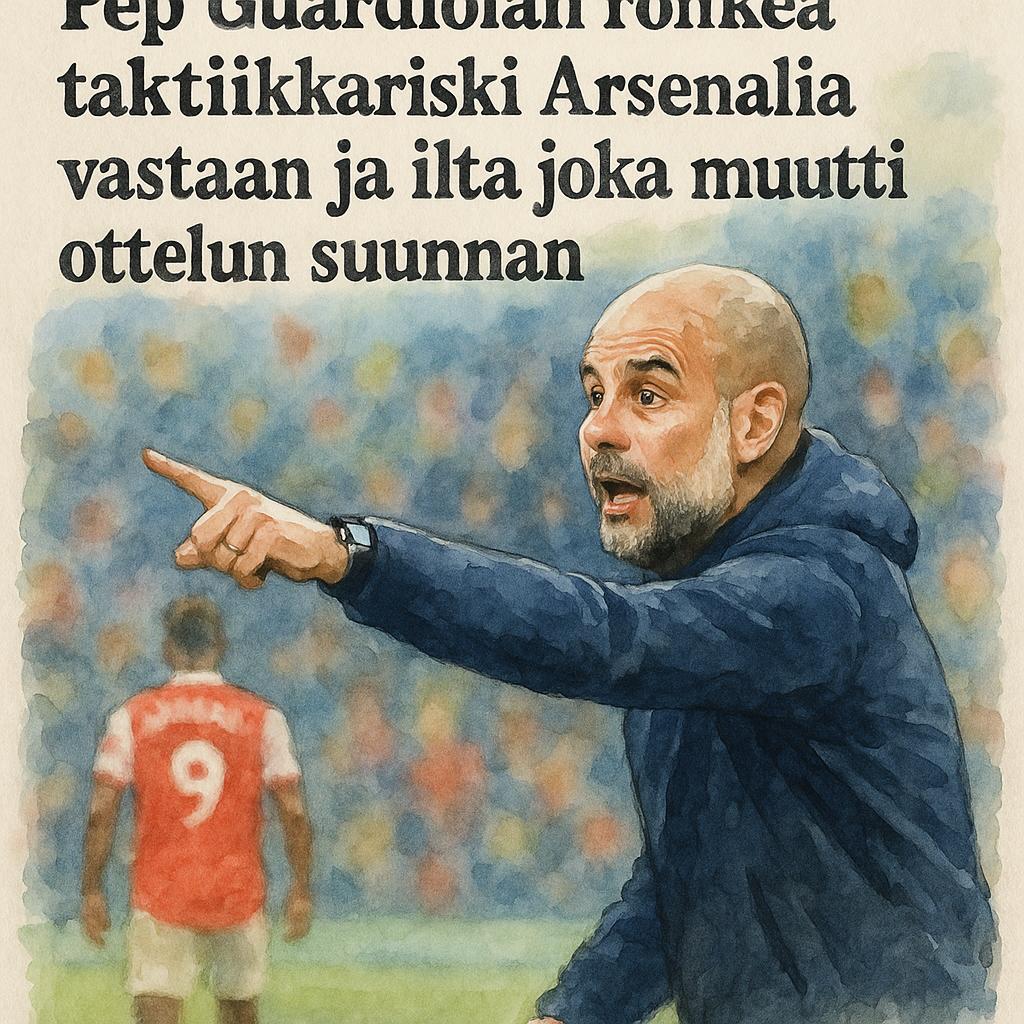Pep Guardiolan rohkea taktiikkariski Arsenalia vastaan ja ilta joka muutti ottelun suunnan
On a damp Sunday night at the Emirates, something happened that hardly fits into the script of modern football – and especially not into that of Pep Guardiola. The man who has built his legacy on control, rhythm, and dominance suddenly turned away from those principles. For once, Manchester City looked less like the side that choreographs football into art and more like a team trying to hang on.
The Dream Start
The evening could not have started better for City. Just nine minutes in, a piercing through-ball from Tijjani Reijnders sliced through Arsenal’s back line, and there was Erling Haaland: one chance, one strike, one goal. In an instant, the Emirates fell quiet as City surged ahead, 1–0. It was the sort of familiar ruthlessness that felt like the first step toward another Guardiola masterclass.
But then, a shift. Instead of chasing the game with relentless possession, City stepped back. They slowed, they absorbed, they invited Arsenal onto them. It was not Guardiola’s signature; it was something else entirely.
The Turning Point
The moment everything tilted arrived just after the hour. Phil Foden, the side’s creative spark, came off for Nathan Aké. Fifteen minutes later, Haaland himself was withdrawn for Nico González. Inside the stadium, disbelief filled the air. Manchester City – Guardiola’s City – were suddenly defending like a team looking to protect a fragile lead rather than impose themselves on the match. The phrase lingered: parking the bus.
Arsenal Smell Blood
To Guardiola’s credit, the gamble nearly worked. Arsenal pressed, passed, and probed but found no way through. The minutes drained away, and frustration grew among home supporters. Yet football often saves its cruelest twist for the last moment. Deep into stoppage time, Gabriel Martinelli pounced when the ball broke kindly, lifting it past Donnarumma. The Emirates erupted in joy and relief. Final score: 1–1.
But the mood was telling – for Arsenal, it felt like a late triumph; for City, like a gamble just lost.
The Weight of the Result
Numbers rarely lie. After five games, City had only seven points, languishing in ninth while Liverpool and Arsenal positioned themselves firmly at the top. More than the numbers, though, it was what the performance said: Guardiola, for once, did not trust his principles. The coach who has insisted that control is the best form of defense chose pragmatism instead. And that hesitation cost him.
Lessons From History
Football, like history, remembers leaders who faltered in their boldness. Hannibal turning away from Rome. Napoleon stranded on Moscow’s roads. Guardiola went nowhere near such ruin, of course – but the parallel is tempting. When the chance came to kill the game, he chose caution. And caution turned against him.
What Lies Ahead?
It is far too early to speak of decline. City remain a force, and Guardiola’s brilliance is unquestioned. This might prove nothing more than a single misstep, quickly forgotten in a season where trophies still beckon. Yet football always clings to rare moments that break the pattern. Not because Guardiola drew a match, but because of how he drew it – abandoning the philosophy that made him great, even if only for a night. And when he did, Arsenal found the gap.
It was a reminder that even the most meticulous architects sometimes doubt their own designs. And on those rare nights, the game itself feels just a little more human, a little more unpredictable – as it did when Arsenal broke through City’s wall and sent the Emirates into chaos.
